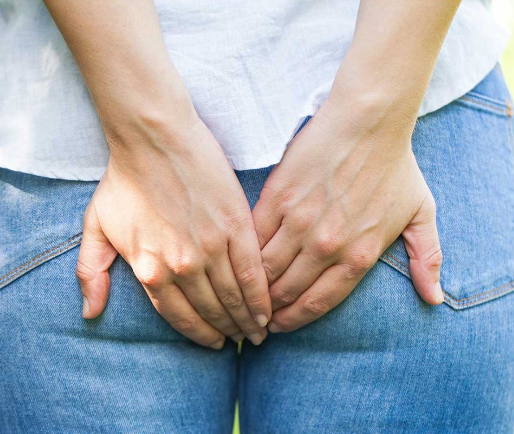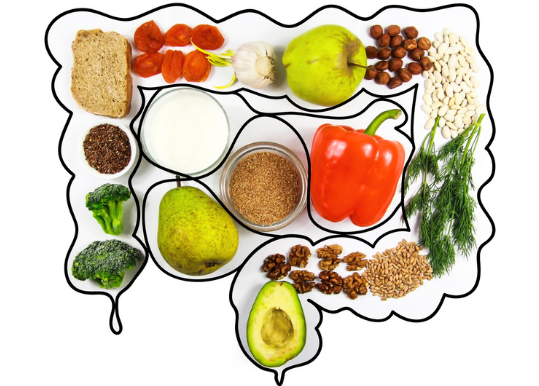Flatulence, more commonly known as farting, is a normal part of life. In fact, most people pass gas between 13 and 25 times per day. While it can be a source of embarrassment or humor, farting serves an important role in the body. It helps release gas that builds up during digestion. But what causes this gas buildup? And more importantly, how can you prevent excessive flatulence? Let’s explore the answers.
Understanding Why We Fart

Farting occurs when excess gas is produced or swallowed and needs to escape through the rectum. This gas is either swallowed air or the byproduct of bacteria breaking down undigested food in the intestines. While farting is completely natural, there are times when it can become excessive or uncomfortable.
By understanding why our bodies produce gas, we can take steps to minimize excessive flatulence and feel more comfortable throughout the day.
What Causes Flatulence?
Several factors contribute to the buildup of gas in your digestive system. Here are the most common causes:
- Swallowed Air: When you eat, drink, or even chew gum, you tend to swallow air. Eating too quickly, drinking through a straw, smoking, or talking while eating can all lead to swallowing more air than usual. This air often exits the body in the form of flatulence.
- Bacteria Fermentation: Certain foods aren’t fully digested in the small intestine. When these foods reach the large intestine, bacteria begin to break them down, producing gas in the process.
- Digestive Disorders: Conditions like irritable bowel syndrome (IBS) or lactose intolerance can increase gas production as your digestive system struggles to process certain foods.
The Science Behind Farting
When gas builds up in the digestive tract, it needs to be expelled to prevent bloating or discomfort. The gas travels through the intestines and is eventually released through the rectum. The gas is primarily composed of nitrogen, oxygen, carbon dioxide, hydrogen, and sometimes methane. While most flatulence is odorless, the presence of sulfur in some gas can lead to the familiar unpleasant smell.
The sound of a fart is caused by the vibration of the anal sphincter as the gas is expelled. While this is perfectly natural, it’s often the reason for embarrassment in social situations.
Common Triggers of Excessive Gas
Some foods and habits are more likely to produce gas than others. Here are some common culprits:
- High-Fiber Foods: Foods like beans, lentils, broccoli, and onions are notorious for causing gas. They contain complex carbohydrates and fibers that are difficult to digest fully in the small intestine, leading to increased gas production in the large intestine.
- Carbonated Beverages: Sodas, sparkling water, and other fizzy drinks introduce extra gas into your digestive system, leading to more flatulence.
- Dairy Products: People who are lactose intolerant have trouble digesting dairy products, which can lead to gas buildup.
- Artificial Sweeteners: Sugar substitutes like sorbitol and xylitol, commonly found in sugar-free gum and candies, are difficult for the body to digest and often lead to excess gas.
Diet and Flatulence: The Connection

The foods you eat play a significant role in the amount of gas your body produces. Complex carbohydrates and high-fiber foods, while beneficial for overall health, are often the main contributors to gas buildup. When these foods aren’t fully digested in the small intestine, they reach the large intestine, where bacteria ferment them, producing gas.
However, it’s important to note that not all gas-producing foods are unhealthy. Many fruits, vegetables, and legumes are nutrient-rich and provide important dietary fiber. The key is moderation and making gradual adjustments to your diet to allow your digestive system to adapt.
Lifestyle Changes to Reduce Flatulence
Reducing the frequency of flatulence can often be achieved by making a few simple lifestyle changes. Here are some tips to help you minimize gas production:
- Eat Slowly: When you eat quickly, you tend to swallow more air, leading to increased gas. Take your time to chew your food thoroughly and enjoy your meal.
- Avoid Carbonated Drinks: Try to limit your intake of carbonated beverages, which introduce extra air into your digestive system.
- Quit Smoking: Smoking can cause you to swallow air, contributing to gas buildup. Additionally, smoking is harmful to your overall health, so quitting offers multiple benefits.
- Exercise Regularly: Physical activity can help promote healthy digestion and prevent gas buildup. Even light exercise, like walking, can help reduce flatulence.
Dietary Adjustments to Prevent Excess Gas

If certain foods are causing excessive gas, making slight adjustments to your diet can help. Here’s what you can do:
- Limit High-Fiber Foods: If you’re experiencing excessive flatulence, try reducing your intake of high-fiber foods like beans, lentils, and cruciferous vegetables (like broccoli and cabbage). Slowly reintroduce these foods to allow your body to adjust.
- Try Lactose-Free Products: If dairy is a trigger, opt for lactose-free alternatives. Many people are lactose intolerant, meaning they lack the enzyme necessary to properly digest lactose, leading to increased gas.
- Avoid Artificial Sweeteners: If you consume sugar-free products with artificial sweeteners like sorbitol, cutting back may help reduce gas.
- Keep a Food Diary: Tracking what you eat and when you experience gas can help identify specific triggers.
Natural Remedies for Flatulence
If you’re looking for natural ways to reduce gas, there are several remedies that may help:
- Herbal Teas: Peppermint, chamomile, and ginger teas can soothe the digestive tract and promote gas expulsion.
- Probiotics: These beneficial bacteria can improve gut health by balancing the microbiome, which can help reduce gas production.
- Activated Charcoal: This natural supplement is sometimes used to bind gas-producing substances in the digestive tract, reducing bloating and flatulence.
When to Seek Medical Advice

Although flatulence is usually harmless, it can sometimes indicate a more serious underlying condition. If you experience persistent gas, bloating, abdominal pain, or changes in bowel habits, it may be time to seek medical attention. Conditions like IBS, celiac disease, or small intestinal bacterial overgrowth (SIBO) could be responsible for excessive flatulence.
It’s also important to see a doctor if your flatulence is accompanied by unexplained weight loss, blood in your stool, or severe abdominal pain. These symptoms could be signs of a more serious digestive disorder that requires medical intervention.
Conclusion
Flatulence is a natural part of digestion and happens to everyone. However, if it becomes excessive or uncomfortable, understanding its causes can help you manage and reduce it. By making simple lifestyle and dietary adjustments, you can keep flatulence in check and improve your digestive health. If natural remedies don’t seem to be enough, don’t hesitate to consult a healthcare professional to rule out any underlying issues.


